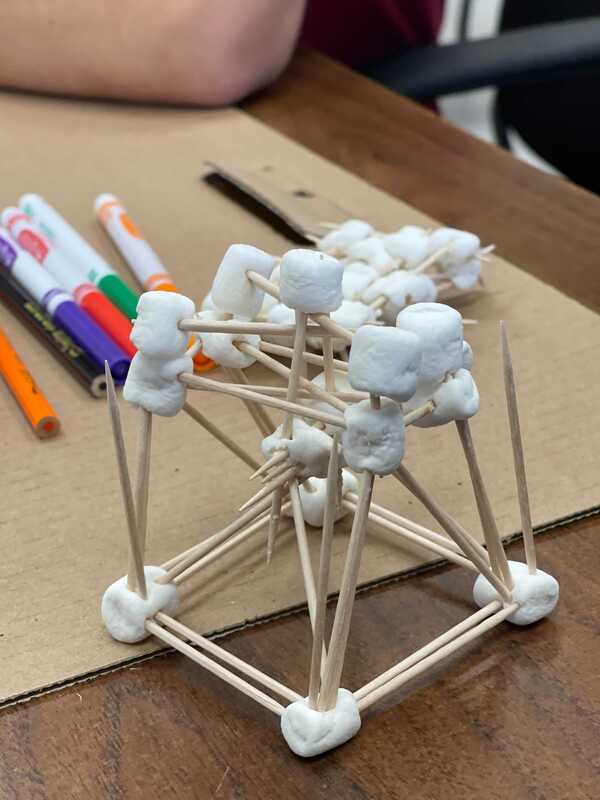Stories From the Field
HOME > OUR IMPACT > SUCCESS > STORIES > "LAUNCHING THE MSIP PROGRAM"
|
This past August, Calculus Roundtable was welcomed by the Karuk Tribe, located along the Klamath River of Northern California, to bring math and science to their youth. On the tribal lands of Happy Camp, Instructional Coach Isis Contreras-Harrison, Science Teacher Benjamin Amundson, and UC Davis Applied Engineering student Diego Harrison collaborated with the Tribal Educational Council to create a weeklong summer program of STEM-related fun and activities. About twenty-five Native middle and high school students participated in our new Math and Sciences of Indigenous Peoples initiative, and learned valuable skills in basic math, algebra, geometry, measurements, engineering, physics, communication, and teamwork.
With the assistance of several key tribal leaders, our team and the students first created a "Code of Cooperation," which emphasized respect, community and working together to build relationships and support an ideal learning environment. Much of the program occurred within the Tribe's natural spaces, as well as their nature center. The nature center hosted freshly grown vegetables, a sunflower garden, a library, and a computer lab, perfect for strengthening student's technological skills. Over the course of the week, students assembled and raced solar-powered cars and boats, built a community water filter, learned the engineering concepts behind basket weaving and the construction of their own structures, and used items in nature to study the Fibonacci number sequence. In this sequence, each numbers is the sum of the two preceding numbers, best represented by a visual spiral pattern as seen in pine cones, shells, and flower petals. Karuk Tribe youth have access to essential role models in their families, tribal leaders, Elders, and young adults who return to the community after receiving scholarships and higher learning elsewhere. Members of the Tribe have a passion for protecting and preserving the land that nourishes them, and many partake in river cleanups and controlled burning that has promoted biodiversity for centuries. With the current global warming crisis and startling increase in the number of destructive fires across the nation, the knowledge of the Karuk Tribe is an invaluable resource. Calculus Roundtable is proud to support and learn from the Karuk, and the powerful combination of conservation efforts and modern technology promotes healthier air, water, land, and futures for all. |


